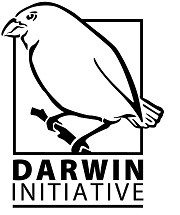Pinning Down the Terrestrial Invertebrates of BIOT
By Paul Pearce-Kelly, Rachel Jones & Matt Robertson, Zoological Society of London
After months of research, a comprehensive species list of the terrestrial invertebrates found in the Chagos Archipelago is nearing completion.
A multitude of resources have been used to bring this information together, including the 1905 Percy Sladen Trust Expedition, the Natural History Museum collection, the works of Barnett & Emms, Stoddart and Lunde, as well as incorporating the observations of scientists working in the archipelago today.
So far 444 species of terrestrial invertebrate have been identified as living on these islands. Amongst this number are 378 species of insect, 23 species of snail, 13 species of arachnid and a centipede.
However, over the past 100 years or so many species have been reclassified and renamed, so a certain amount of detective work has been required to match these animals to their modern day scientific names and classification.
Preparation for the expedition hasn’t just involved scouring dusty tomes and specimen collections. The practical side of selecting the correct equipment capable of sampling species that can be aerial, terrestrial, subterranean, aquatic or, indeed, all of these, also required extensive research and testing.
Fortunately, we had the opportunity to put the various nets, traps and lures through their paces on a recent field trip to Mongolia, a place with a surprisingly similar range of invertebrates (minus the crabs!).
The numerous islands of the Chagos Archipelago comprise many habitats, from near pristine to coconut monoculture, each with their own unique range of invertebrate species. Narrowing down which of these islands to concentrate our efforts on will make up the next phase in the planning process.
 As part of CCT’s Darwin Plus funded “Creating a Terrestrial Action Plan for the Chagos Archipelago” project the Zoological Society of London’s invertebrate team will be surveying invertebrates during the expedition in 2017.
As part of CCT’s Darwin Plus funded “Creating a Terrestrial Action Plan for the Chagos Archipelago” project the Zoological Society of London’s invertebrate team will be surveying invertebrates during the expedition in 2017.

